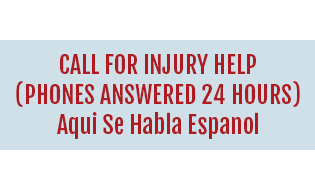If you’re dealing with an infected dog bite for personal injury claims, you’re probably not sure what to do next. You’re in pain, maybe missing work, and unsure if this is something that could turn into a bigger legal issue.
The truth is, dog bites can lead to serious infections. And if someone else is responsible, you may be entitled to compensation. Here’s what to do after the bite, and why these steps really matter.
Contents
1. Get Medical Help Immediately
Don’t wait and see how it goes. Even small bites can carry bacteria that lead to serious infections. Some early signs of an infected dog bite include redness, swelling, pus, warmth around the wound, or fever.
If you’re unsure what an infected dog bite looks like, it’s always safer to let a doctor make that call. You’ll also need medical records to support any claims down the road. That first visit could help both your health and your case.
2. Report the Incident to Local Authorities
Filing a report may seem unnecessary at first, but it becomes useful later if you move forward with the personal injury claims process. That report can back up your story and confirm the details.
Once you’ve seen a doctor, report the bite to your local animal control or health department. This helps document what happened and whether the dog has a history of aggressive behavior. It also confirms if the dog was up to date on its shots.
3. Document Everything Related to the Bite
Start keeping a folder with all documents related to the dog bite. The more information you have, the easier it will be to support your case later. Begin with photos of the injury.
Take clear pictures as soon as possible after the infected dog bite, and then continue documenting the wound’s appearance over the next few days and weeks. Infections can change quickly, and visual evidence is hard to dispute.
Save all medical records, including ER or urgent care visits, prescriptions, discharge instructions, test results, and specialist referrals.
If the pain is preventing you from sleeping, walking, driving, or engaging in regular activities, make a note of it in a daily journal. Even emotional impacts like anxiety around dogs or trouble going outside can strengthen claims for personal injury by showing the full scope of your experience.
Small details might seem unimportant now, but they can make a big difference in how your claim is evaluated later. The more complete your records are, the better chance you have of receiving fair compensation for everything you’ve gone through.
4. Be Careful When Talking to Insurance Companies
After you report the bite, there’s a good chance the dog owner’s insurance company will contact you. They might sound polite and helpful, but their job is to settle the case quickly and for as little money as possible.
You don’t have to provide a statement immediately. Understanding how personal injury claims work can help you avoid settling for less than you deserve.
5. Speak with a Personal Injury Lawyer Early On
Even if you’re unsure whether you want to file a case, talking to a lawyer can give you some peace of mind. A good personal injury lawyer can walk you through the process, help you avoid common mistakes, and explain what your case might be worth.
An infected bite can lead to long-term medical issues or even permanent scarring. Knowing your options early on makes the claims process much easier to handle.
Take Action Before the Bite Gets Worse
An infected dog bite for personal injury claims can lead to more than just medical bills. It can impact your work, daily life, and overall well-being. Taking the right steps early can protect your health and give you the chance to recover damages for what you’ve been through.
If you’re unsure where to start, that’s exactly what we’re here for. Contact Appalachian Injury Law today at (706) 515-1995 or (800) 393-8595, or reach out through our Contact Us page for a consultation.






